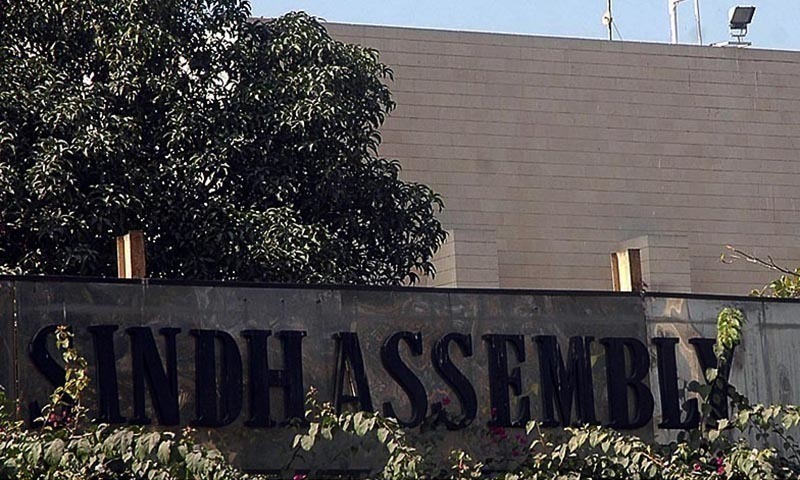KARACHI: As part of the implementation of the National Action Plan, the Sindh Assembly on Monday unanimously passed a government bill into law for keeping a record of tenants and temporary residents in houses, hotels, guest houses and hostels across the province.
The law — The Sindh Information of Temporary Residents Bill 2015 — will come into force after the Sindh governor gives his assent to it.
Under the new law, failing to provide information to police about a tenant within 48 hours from the time of delivery of possession of the rented premises would be a cognizable and non-bailable offence and liable to be imprisonment up to six months and fine from Rs10,000 to Rs45,000.
While the bill was unanimously passed, opposition leaders expressed their concerns and felt that the law would turn Sindh into a police state.
They feared that the police would misuse the law and harass millions of people.
Leader of the Opposition in the Sindh Assembly Shahryar Khan Mahar and parliamentary party leader of the Muttahida Qaumi Movement Syed Sardar Ahmad suggested certain amendments to extend the time limit of reporting to the police, exempting landlords and tenants from police investigations and to make the bill non-cognizable and bailable.
However, the treasury benches rejected all the proposed amendments by majority votes.
Parliamentary Affairs Minister Dr Sikandar Mandhro said that the purpose of the legislation was the implementation of the National Action Plan against terrorism.
He said that the law did not mean to give a free hand to the police to plunder and mint money but to curb terrorism by regulating the matters of information about tenants and other temporary residents.
Under the bill, not only landlords, property dealers and tenants but also the owners and managers of hostels and guest houses would be liable to the same punishment if they fail to provide information about their guests/tenants.
The time limit for the hotels/guest house and hostel is three hours from the time of arrival or check-in of a guest in the prescribed manner through the latest means of communication.
In the hostels of organisations or institutions a person, not being student or staff, shall not stay at the hostel without prior permission in writing of the manager.
The new law also asked landlords, managers or property dealers to not allow any tenant or guest to stay at the rented premises, hostel or hotel unless they are satisfied about their identification on the basis of their computerised national identity card (CNIC) or passport.
The managers/landlords/property dealers shall also obtain a copy of the CNIC or passport of the tenant or the guest and shall provide such copy to the police at the earliest.
The police shall maintain a database of all the tenants and guests by categorising them in the prescribed manner and conduct analysis of the data for prevention, detection and investigation of offences.
“The information received under this Act shall not be used for any purpose other than prevention detection, investigation and prosecution of offences of terrorism and other offences under the Pakistan Penal Code, 1860,” read the bill.
It said that a police officer not below the rank of sub-inspector may, subject to a reasonable notice, inspect a rented premises, hostel or hotel and obtain necessary information from the relevant documents and persons including landlord, tenant, manager, guest or property dealer.
The police shall ensure compliance of this act through spot inspections and local verifications.
The landlord, manager and the property dealer shall ensure that the tenant or guest is not carrying or in possession of a firearm or any explosives other than a licensed weapon.
Speaker Agha Siraj Durrani, who called the house in order at 10.45am, informed the house that the Sindh governor had given his assent to the Sindh Allopathic System (Prevention of unauthorised use) Bill, 2014.
Dr Mandhro also tabled a bill — The Jinnah Sindh Medical University (Amendment) Bill, 2015 — which would be taken up for consideration on Friday.
The Jinnah Postgraduate Medical Centre and National Institute of Child Health would become the constituent centre and constituent institute of the university.
After completion of the agenda, the speaker called it a day at 3.10pm to meet on Tuesday (today) at 10am.
Published in Dawn, April 14th, 2015
On a mobile phone? Get the Dawn Mobile App: Apple Store | Google Play













































